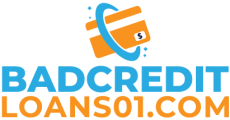Debt consolidation loans offer an easy solution to simplify your finances by paying off multiple loans with one payment, potentially saving you money on interest expenses and tax bills.
Debt consolidation can be a beneficial option for those with credit cards or other high-interest loans, but it’s essential that you maintain discipline when making payments on your new loan. Consolidating debt into a home loan can be a smart financial move for homeowners who want to simplify their payments and potentially save money on interest.
Home Equity Loans
A home equity loan is a type of mortgage that lets you borrow against the value of your house. You can use it for various reasons, such as purchasing a new residence, making improvements to an existing one or paying off high-interest debts.
Home equity loans come in two primary forms: a Home Equity Line of Credit (HELOC) and an adjustable-rate mortgage (ARM).
HELOCs are a secured form of credit, meaning the lender has the power to take your home if you fail to make payments on time. They can be an ideal solution for homeowners who need to finance home renovations or emergencies like medical bills or job loss.
Interest paid on a home equity loan or line of credit may be tax-deductible; however, it’s best to consult with a tax advisor for clarification.
A home equity loan can be a convenient way to consolidate your debts into one affordable payment, but it may not be the best solution for everyone’s financial situation.
Debt consolidation home loans can be an effective way for individuals to pay off high-interest debts, such as credit card balances, by combining them into a single, lower-interest mortgage payment.
Home Equity Lines of Credit (HELOCs)
Debt consolidation is an effective way to simplify your payments and pay off more debt quickly. Additionally, it can save money by locking in a lower interest rate than you currently pay elsewhere.
If you have equity in your home, combining a home loan with an HELOC may be possible to consolidate debts and simplify managing finances. Before making the decision to pursue either lending option, it’s essential to comprehend its workings, advantages and potential drawbacks.
A HELOC is like a second mortgage, allowing you to borrow up to the value of your home and repay it over time on an as-needed basis with an interest rate that may change over time. Generally, you have 10 years to withdraw cash from a HELOC while paying only interest, then 20 more years to repay both principal and interest.
Credit Cards
Credit cards are an increasingly popular way to purchase items and pay for them later. Furthermore, they allow you to build a credit history, which may grant access to discounts, rewards or benefits in the future.
However, purchasing with credit can also come with interest charges and fees. The best way to manage your debt on credit cards is to keep balances low and pay them off completely each month.
Many people feel tempted to close their credit cards after paying off debt, but doing so could damage your credit score. Instead, look for ways to combine existing accounts in a healthy way – such as making a balance transfer or using debt consolidation loans – without reducing your total available credit limit.
Personal Loans
Personal loans are a convenient form of credit that can be used for various purposes, including debt consolidation. They’re also useful when faced with unexpected expenses like an unexpected medical bill or urgent roof replacement.
Personal loans can be an effective tool for paying off various debts, such as credit card balances, car payments and student loan debt. Since they often come with lower interest rates than other forms of credit, they become a particularly appealing solution for debt management.
Applying for a personal loan will impact your credit report, but many lenders allow you to prequalify before formally applying.
In Last:
Prequalifying won’t affect your credit score, which is great news if you need to borrow a large sum of money or need an affordable interest rate. However, it’s best to formally apply with the lender of choice before using the loan for its intended purpose; some require hard credit pulls which could knock off five points from your score and remain on file for two years.

